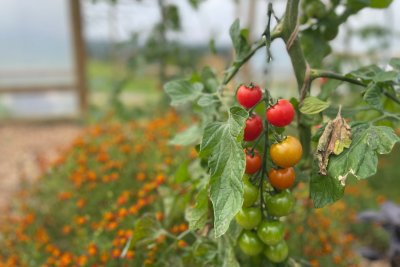New report makes the case for a standard UK measure of household food insecurity
The UK currently does not measure household food insecurity, defined as insufficient or insecure access to food due to resource constraint. The absence of regular, accurate data keeps the magnitude of the problem hidden, allowing for government inaction. A new report from Sustain and partners published today argues that the UK would benefit from using a standard measure of household food insecurity, which could be used to monitor the problem as part of existing social and health surveys.
Download 'Time to count the hungry' as a 834 Kb PDF
Food insecurity affects life chances and harms the economy. Food insecurity pushes families to seek out cheaper and less healthy sources of calories and is associated with higher healthcare costs. Yet the UK government currently does not measure household food insecurity, defined as insufficient or insecure access to food due to resource constraint. International learning tells us that regular, government-led national measurement of adult and child food insecurity should be a priority for the UK.
Time to Count the Hungry, a new report published today, urges UK government to commit to annual monitoring of food insecurity. The report is the product of a workshop devoted to the problem of monitoring household food insecurity in the UK, jointly organised by Sustain with the Food Research Collaboration, the Food Foundation, Oxfam, and the Sociology Department of Oxford University. The workshop, held in London in January 2016, was attended by academics and representatives from civil society organisations with long experience of working on the issue, and included presentations on past attempts to assess household food insecurity, methods of measurement used in other countries and by the UN, and current activity in the UK’s devolved administrations.
The conclusion of the workshop was that the UK would now benefit from using a standard measure of household food insecurity, which could be used to monitor the problem at both national and devolved levels as part of existing social and health surveys. This report makes the case for such a measure, and suggests two possible formats. It is hoped that it will stimulate discussion and form the basis of an action plan to bring about change.
The next step is to discuss this proposal in more detail with the devolved administrations, to agree on a set of questions suitable for use in the UK, and to investigate how (and at what cost) the proposed set of questions could most effectively be included in UK-wide or devolved-level surveys. As part of its obligations under the Sustainable Development Goals, agreed in 2016, the UK will shortly have to begin collecting data on national food insecurity. This presents an opportunity to introduce a robust measurement, along the lines described here, which would assist all those whose ambition is to end food insecurity in the UK.
The report and workshop were supported by the emerging UK Food Poverty Alliance, which includes Child Poverty Action Group; Church Action on Poverty; Fabian Commission on Food and Poverty; FareShare; Food Ethics Council; Food Matters; Food Foundation; Food Up Front; Magic Breakfast; Nourish Scotland; Oxfam; Sustain and the Trussell Trust. This work was supported by funding from the ESRC Impact Acceleration Account at the University of Oxford.
Published Tuesday 5 April 2016
Food Poverty: Millions of people in the UK struggle to get enough to eat. We’re working to change that through people-powered projects and campaigns that tackle the root causes of food poverty and ensure everyone has dignified access to healthy, affordable food.





